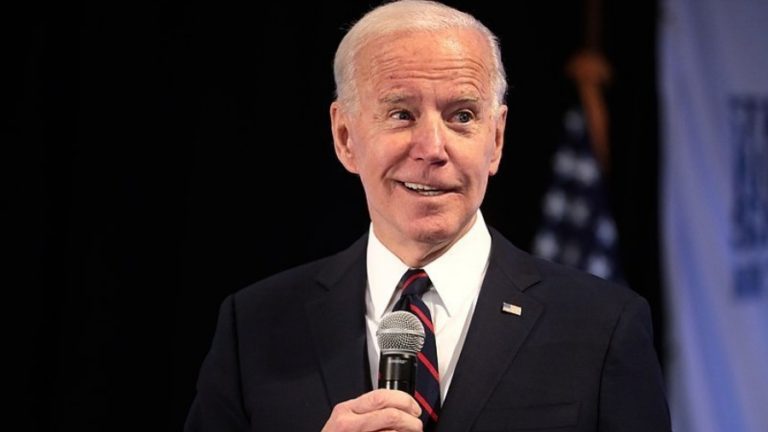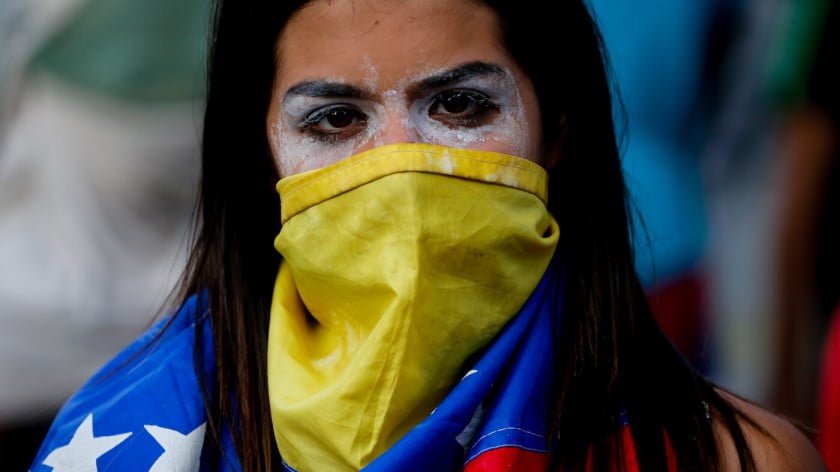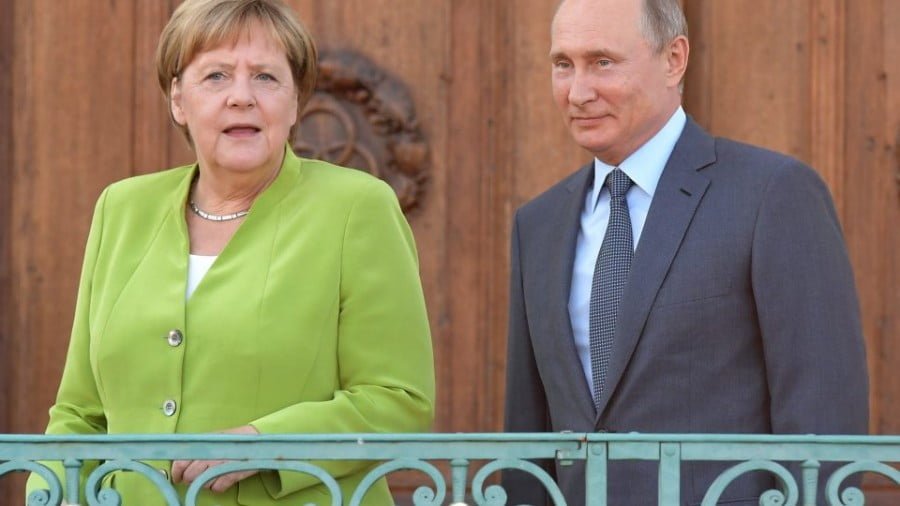Goodbye: Has Russia Had Enough Insults?
I have argued that Russia is not a “European country”; my argument stands on the fact that Russia and Europe had quite different histories and little contact until the Emperor Peter became a major player in European history by knocking Sweden out of the running. I have argued that, whatever they may have wished in the past, an increasing number of Russians today don’t want to be “Europeans”: they view Europe – the West – with increasing distaste and bewilderment. “Europe” is, of course, a word with many meanings: here I mean a culture/civilisation/society that, over the past half millennium, has spread around the world and now is commonly called “the West”. These days, the capital power of the West is the USA but the USA, Canada, Australia, much of South America and many of the other outposts of European settlement are children of the original European civilisation.
Russia’s relationships with the West have gone through many ups and downs – ally, for example, with Britain in 1812, 1914 and 1941, enemy in 1853, 1918, opponent during the so-called Great Game and the Cold War. Russians often see the relationship as one of ungrateful rejection: take, for example, the long-forgotten important service Russia did for the Union in 1863. In my mind this feeling stems from Russia’s unusual history as a predator fish which remembers its long time as a prey fish – its neighbours remember the first, itself the second – the prey fish feeling was, of course, strongly reinforced by the death struggle of 1941-45.
Be that as it may, since the fall of the USSR and the end of communism, Russia has been rejected by the West. After a short-lived period in the very early 1990s when there was talk of “A new era of Democracy, Peace and Unity” “a time for fulfilling the hopes and expectations our peoples have cherished for decades”, the rejection has been unmistakable, brutal and direct. NATO expansion, in whatever platitudes it was wrapped, now stands clear as what Moscow always thought it was – an anti-Russia enterprise moving military forces ever closer to Russia. Russians are quite right to see colour revolutions in their neighbourhood as moves against them. Russia is under a permanent sanctions regime – the excuse changes but the sanctions remain and Jackson–Vanik was instantly replaced by the Magnitsky Act. Washington continually adds new sanctions and ensures that its lackeys do as well. And, even though a strong argument can be made that the sanctions have benefited Russia because Moscow was smart enough to deal with them like a judo master, the fact remains that sanctions are hostile acts short of war.
So, many people wondered how much longer Moscow would keep on making offers to its “partners” and seeing them thrown back at it. Some think Putin is too soft – it’s a generally accepted estimate that about half of the 25% or so of Russians that do not approve of his performance in office do so because they think him too obliging.
Well, maybe it’s happening at last. We will take the remarks by Foreign Minister Lavrov noting that he is not a man who has ever spoken lightly or without thought: whatever he says is to be taken seriously. At Valdai he said:
we must stop considering our Western colleagues, including the EU, as a source of assessment of our behaviour that we need to follow, or measuring ourselves with the same yardstick.
And
if the EU is arrogant enough to declare, with this sense of unconditional superiority, that Russia must understand there will be no “business as usual,” well, Russia wants to understand whether there could be any business at all with the European Union under these conditions.
That’s pretty plain – Russia rejects the West’s self-awarded role of judge and will not be its liegeman. It strongly suggests that Moscow is thinking about giving up. It has, however, made one last offer – perhaps the last offer, even a test: Moscow will not deploy certain missiles if the West does not.
The Navalniy affair seems to have been the one step too many. Aleksey Navalniy is an anti-Putin activist much beloved in the West but mostly ignored by Russians: his poll rating is around the margin of error and only occasionally has he had much of an effect. In August 2020 he fell sick on an airplane which turned back and landed in Omsk where he was hospitalised. A few days later, still in a coma, he was flown to a hospital in Germany. We have only recently learned that the transfer to Germany was at Putin’s direct urging.
It is obvious that Putin didn’t poison him; to believe he did is to believe that the murderer, with the victim in his power, sent him to safety. Nonetheless it was immediately declared that Navalniy had been “poisoned” and by none other than “novichok” and, what is more, by a “a variant that the world did not know until this attack, but which is said to be more malicious and deadly than all known offshoots of the Novichok family… The fact that he is still alive… is only due to a chain of happy circumstances.” (Those “happy circumstances” remind the cynic of the “miracle” that saved Detective Sergeant Nick Bailey and his family from the novichok smeared everywhere in their house.) Despite this especially “malicious” variant, he was out of his coma in a much shorter period than the Skripals who were not killed by the old version either. The cynic would notice that, despite being “more malicious”, this particular novichok did not need people in hazmat suits cleaning everything in sight. The poison arrived via tea; smeared on a water bottle; on his clothing. In short, a tale we have heard before: the assassins don’t try something simple like a car crash but use something that can be pinned on them; an incredibly deadly poison that is ineffective; the assassins don’t follow through; the story of how the poison got into him keeps changing and no actual chains of custody, evidence or anything else is every presented. But at least the German hospital has been allowed to keep its roof.
The European Union likes to boast about its values. Among them is this: “Everyone who has been charged shall be presumed innocent until proved guilty according to law.” But not if you’re Russia. Russia must answer questions demands UK, Europeans on OPCW, Merkel, NATO, When Russia was unable to prove innocence, the EU sanctioned Russian officials as did most of the West.
So, to recap. Navalniy falls sick, receives treatment in Russia, is moved to Germany, “novichok” is found, Russia “fails to explain”, Russia is blamed and sanctioned. No facts, no data, no believable or consistent story. Where was the “proved guilty according to law” there?
Very much of a pattern this and we’ve seen it with the Skripals, Nemtsov, MH17, Magnitskiy, Moskalenko (I wonder if anyone remembers that one? How about Patarkatsishvili?), Litvinenko, Politkovskaya – blame Putin immediately and declare him guilty when he fails to prove the negative and huff “Russia’s contempt for the international norm against chemical weapons use must stop“. Add to this NATO expansion, colour revolutions, endless accusations of submarine incursions or election interference and all the rest. Year after year after year. Even the dullest muzhik in deepest Siberia should have got the point that, as far as the West is concerned, Russia, the ever-enemy, is guilty of any charge you want to make. Russia is guilty just because it is. And anyone who asks about ducks or children can only be a Putinbot spewing fake news.
So is Moscow about to say it’s had enough? If so, it has somewhat of a problem. At the moment and for the foreseeable future, depending on how serious the civil disorder is after its election, the United States is the principal power in the world if for no other reason that it has far more destructive power than anyone else. Moscow must tread carefully here; cutting relations with Washington would cost more than it’s worth. London is probably lost to Moscow but Berlin, Paris and Rome are not necessarily lost. And, as they go, many other Europeans will follow. Therefore Moscow can hope that, in the reasonable near term, more normal relations with some of the principal European powers may be possible. Thus it would be a bad move to cut relations with them.
But, Brussels, the European Union structure, what use is that? Russia has an embassy to the EU because, they say:
Where’s the “close and comprehensive partnership”, where’s the “equality, mutual benefit and respect”? And the next sentence in the website is not true: “Russia and the EU enjoy intensive trade and economic relations.” No they don’t: the only entities to trade with the EU qua EU are manufacturers of office supplies, paper and red tape. Russia has trade with Germany, Italy et al – with members of the EU, not the EU itself. What’s the point?
So, if Moscow has had its fill of three decades of insults, offences and calumnies and wants to make a point, cutting relations with the EU structure would be the place to start: easy and cheap. Pull out the permanent mission and stop all doings: deal with the individual countries one by one. Brussels might even welcome the savings now that it’s lost a chunk of its budget.







